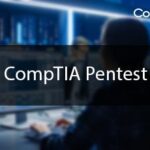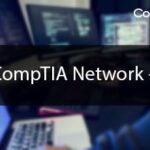The Dark Web: A Closer Look at the Underground Internet

The Dark Web: A Closer Look at the Underground Internet
A Closer Look at the Underground Internet
In this article, you will get a brief introduction to the Dark Web, such as what it is, how it works, what the issues related to it, and how we could get hurt so seriously while using it for fun or whatever reason it could be.
It’s that part of the internet that is not visible to normal users who don’t know how to access it. Moreover, you will learn that it is used to commit heinous crimes that are not normal and can be extreme in the eyes of the viewers.
As its name suggests, it involves a dark world revolving around placing every possible cybercrime on online platforms for the viewers/ payers. The most unbelievable thing you will hear is that the criminals over the dark web could even get you killed even if they don’t know first for a bit of money paid to them.
Now that you know about the dark web, let’s move forward.
What is the Dark Web?
A portion of the internet that is purposefully hidden and not indexed by search engines is known as the Dark Web. Although it has legitimate purposes as well, it is recognized for its anonymity and encryption features and is frequently linked to unlawful operations.
How Does the Dark Web Work?
The Dark Web uses various technologies and procedures that prioritize secrecy and anonymity. Here is a short description of how it operates:
| S.No. | Tasks | Define |
| 1. | Onion Routing | The Tor network (also known as The Onion Router) is the most widely utilized tool for accessing the Dark Web.
Your internet traffic is routed through a network of nodes (servers) that volunteers operate to mask your IP address using Tor. To increase anonymity, each node in the chain only knows the IP addresses of the nodes before and after it. |
| 2. | Hidden Services | The “.onion” domain, which is only accessible through the Tor network, is used by websites on the Dark Web.
We refer to these as hidden services. Your connection to a “.onion” website is routed through Tor, making it difficult to determine your identity or location. |
| 3. | Encryption | The confidentiality of data is protected by robust encryption on the Dark Web.
Data is frequently end-to-end encrypted, meaning only the sender and recipient can decrypt it. |
| 4. | Accessing the Dark Web | Users often download and install the Tor Browser, a customized version of Mozilla Firefox set up to function with the Tor network, to access the Dark Web.
Users of this browser can view “.onion” websites privately. |
| 5. | Anonymity Measures | Users on the Dark Web go above and beyond to secure their IDs, such as by
a) Pseudonyms, b) Disposable Email Addresses, and c) Cryptocurrency for Transactions. |
| 6. | Marketplaces and Forums | There are many different marketplaces, forums, and communities on the Dark Web, some of which are legitimate and lawful, while others are engaged in criminal activity.
These websites allow users to share information, have debates, and buy and trade goods and services. |
Navigating the Dark Web
To navigate the Dark Web, follow these steps:
- Download the Tor Browser
Visit the Tor Project’s official website to get the Tor Browser, which is made for use to visit the Dark Web.
- Install and Set Up Tor
Install the Tor Browser and then follow the simple setup instructions.
- Use Search Engines
Search engines for the dark web, such as DuckDuckGo or notEvil, can be used to locate.onion webpages.
- Visit Known Sites
To find more links and resources, you can visit popular Dark Web sites like the Hidden Wiki.
- Practice Caution
Take utmost care while clicking on links, and steer clear of illicit activity.
- Maintain Privacy
For increased secrecy, use aliases, temporary email addresses, and bitcoin.
- Stay Informed
Before going any further, educate yourself on the risks associated with the Dark Web.
The Anonymity of the Dark Web
The Tor network, which sends Internet traffic through numerous encrypted nodes and makes it challenging to track a user’s identity and location, is the primary method by which the Dark Web’s anonymity is achieved.
To further secure their privacy, users frequently use pseudonyms, disposable email addresses, and encryption.
One important aspect distinguishing the Dark Web from the Clear Web (the mainstream internet) is its anonymity. It is accomplished by using multiple levels of security and privacy protections:
- Tor Network
- Encryption
- Pseudonyms
- Disposable Email Addresses
- Cryptocurrencies
- Hidden Services
- Secure Communication
The Legal and Ethical Dilemmas
Due to its links to anonymity, privacy, and unlawful activity, the Dark Web raises a number of legal and ethical conundrums. The main problems are as follows:
- Balancing Privacy and Law Enforcement:
Legal Dilemma
Defending the privacy rights of people who use the Dark Web lawfully while allowing law enforcement to look into and stop illegal activity.
Ethical Dilemma
Finding a balance between societal security concerns and individual privacy issues, particularly when unlawful activity is involved.
- Access to Information:
Legal Dilemma
The Dark Web gives people in oppressive regimes access to unfiltered information, which can be useful but contains potentially destructive material.
Ethical Dilemma
Choosing whether unlimited access to potentially damaging or illegal material should be allowed in the name of information freedom.
- Anonymity vs. Accountability:
Legal Dilemma
It can be challenging to hold people responsible for their conduct on the Dark Web due to their anonymity, especially when they commit crimes.
Ethical Dilemma
Weighing the advantages of online anonymity for free expression and whistleblower protection against the difficulties it provides for law enforcement and accountability.
- Illicit Markets:
Legal Dilemma
Dealing with expanding dark web marketplaces that sell stolen data, drugs, guns, and other illegal products.
Ethical Dilemma
Examining the moral ramifications of engaging in or benefiting from illegal markets, as well as the damage they may do to people and society.
- Ethical Hacking and Research:
Legal Dilemma
Establishing the parameters for ethical hacking and research on the Dark Web, where security experts and researchers can look into risks and vulnerabilities.
Ethical Dilemma
Weighing the hazards of unintentionally helping cybercriminals or violating users’ privacy against the need for security research.
- Reporting Illegal Activities:
Legal Dilemma
Empowering people to report illegal activity on the Dark Web while maintaining their privacy and safety.
Ethical Dilemma
Deciding when and how to disclose criminal activity, keeping in mind the possible repercussions for persons engaged as well as the broader societal effects.
- Freedom of Expression vs. Harmful Content:
Legal Dilemma
Defending the right to free speech while combating dangerous or extremist content on the Dark Web.
Ethical Dilemma
Balancing the need to support free speech by stopping the spread of violent or dangerously ideologic ideas.
Dark Web Marketplaces
Dark Web marketplaces are electronic venues on the Dark Web where different products and services are bought and sold, frequently using cryptocurrency. While some of these marketplaces feature authentic, lawful products, others are infamous for supporting criminal activity.
Here are a few illustrations of both varieties of dark web markets:
- Legal and Legitimate Marketplaces:
Cryptocurrency Markets
The Dark Web has some marketplaces that sell goods and services related to cryptocurrencies, like
- Wallets,
- Guides, and
- Consulting Services.
Privacy Tools
These markets could offer privacy-focused tools, such as
- VPNs,
- Encryption Software, and
- Secure Communication Solutions.
Digital Art and Media
Digital artwork, e-books, music, and other digital materials are available for purchase on several Dark Web marketplaces from independent authors.
- Illicit Marketplaces:
Drug Markets
These markets are notorious for selling illicit narcotics, such as
- Prescription Medications,
- Narcotics, and
- Controlled Substances.
Stolen Data and Hacking Services
Illegal marketplaces could provide stolen information like
- Credit Card Data,
- Login Credentials, and
- Hacking Tools & Services.
Weapons and Firearms
Some Dark Web marketplaces enable the selling of weapons, including rifles and ammunition, frequently illegally.
Counterfeit Goods
These markets offer
- Counterfeit Passports,
- IDs,
- Driver’s Licenses,
- Banknotes, and
- Various Counterfeit Products.
Fraud and Financial Services
On some marketplaces, you can find services for
- Financial Manipulation,
- Credit Card Fraud, and
- Identity Theft.
Digital Goods
Illegal Markets may sell
- Stolen Software,
- Accounts, and
- Digital Services.
Darknet Forums and Communities
Darknet forums and communities act as hubs for trade even though they are not conventional marketplaces.
- Discussing Illegal Activities,
- Sharing Information, and
- Organizing Criminal Activities.
Cryptocurrencies on the Dark Web
Because of their anonymity and convenience for online transactions, cryptocurrencies are frequently used on the Dark Web. What you need to know about cryptocurrencies on the Dark Web is as follows:
- Bitcoin Dominance
- Pseudonymity
- Privacy Coins
- Transaction Security
- Ease of Use
- Anonymity vs. Traceability
- Volatility
- Exit Scams
Hacking and Cybercrime
The following are some ways that the Dark Web is strongly tied to hacking and cybercrime:
- Illegal Services
Marketplaces for hacking and cybercrime services are hosted on the Dark Web, including.
- Selling Stolen Data,
- Hacking Tools, and
- Data Breaches
Usernames, passwords, and financial information that have been stolen during hacks are frequently traded on dark web markets.
- Cybercrime Forums
Cybercriminals might use dark web forums and groups as a platform to
- Share Knowledge,
- Collaborate, and
- Plan Illegal Activities (including hacking.)
- Anonymity
The Dark Web’s anonymity qualities attract hackers and cybercriminals who want to do their business without disclosing their identities or whereabouts.
- Illegal Marketplaces
Certain Dark Web shops focus on
- Selling Hacking Tools,
- Services for Launching Cyberattacks, and
- Access to Compromised Computer Systems.
- Money Laundering
Cybercriminals may use the Dark Web to convert stolen funds into cryptocurrency or other assets as a means of money laundering.
Whistleblowers and Activists (Only refresh this)
- Whistleblowers:
- Definition
People who report misconduct, unlawful activity, or wrongdoing within an organization are known as whistleblowers.
- Organizations,
- Government Agencies, or
They frequently present the public or the proper authorities with proof of these operations.
- Role on the Dark Web
On the Dark Web, leakers can safely exchange sensitive information or leaked documents without disclosing their names by using the platform’s anonymity and privacy features. This can be crucial in cases involving
- Government or Corporate Corruption,
- Human Rights Abuses, or
- Other Forms of Misconduct.
- Activists:
- Definition
Those who support particular social, political, or environmental concerns are known as activists. They work to spread knowledge about their chosen cause, encourage change, and press for legislative changes.
- Role on the Dark Web
On the Dark Web, activists use the platform to talk about their concerns safely and anonymously. They might develop websites, forums or sharing resources.
- Information,
- Organize Campaigns, or
- Support like-minded Individuals.
On the Dark Web, some activists work to promote freedom of speech, human rights, and opposition to censorship.
The Cat-and-Mouse Game: Law Enforcement vs. Dark Web
With ongoing adaptation and retribution on both ends, the interplay between law enforcement and the Dark Web can be compared to a never-ending game of cat and mouse. The following is how this dynamic operates:
- Dark Web Evolution
While law enforcement agencies develop new strategies and technologies to track illegal activity on the Dark Web, criminals, and cybercriminals adapt and adopt new tactics to maintain their anonymity and avoid detection. Use of this includes
- More Sophisticated Encryption,
- Anonymization Methods, and
- Law Enforcement Efforts
Law enforcement agencies throughout the world are actively tracking and looking into criminal activities on the Dark Web. To track down and hold those involved in
- Criminal Activity,
- Working with International Cooperation,
- Specialized Cybercrime Units, and
- Digital Forensics.
- Marketplace Takedowns
Operations to shut down illegal forums and markets on the Dark Web are often carried out by authorities. These actions might lead to detentions and the seizure of illegal goods, but they might also create new marketplaces.
- Tor Vulnerabilities
Researchers and law enforcement agencies occasionally discover vulnerabilities in the Tor network, which powers the Dark Web. These shortcomings can be corrected, reducing the effectiveness of some anonymization strategies.
- Whistleblowers and Informants
Inputs from informants and whistleblowers who may have direct knowledge of activities on the Dark Web are used by law enforcement. The disclosure of these facts might lead to arrests and the dissolution of illegal enterprises.
- Public Awareness
Learning about the risks and consequences associated with engaging in illegal activities on the Dark Web may deter some individuals from committing crimes.
- Emerging Technologies
Law enforcement agencies spend in developing and implementing innovative
- Tracking Cryptocurrency Transactions,
- Monitoring Online Forums, and
- Tracing the Flow of Illegal Goods.
- Legal Challenges
In order to deal with operations on the Dark Web, several nations have varied legal frameworks. Authorities must control the investigation process when conducting.
- Legal Obstacles,
- International Boundaries, and
- Privacy Issues.
The Bright Side: Positive Aspects of Anonymity,
The Dark Web offers some benefits since it places a strong emphasis on anonymity and privacy:
- Protection of Free Speech
The Dark Web offers protection through anonymity, allowing people in countries with oppressive regimes to express their ideas and share information without fear of retribution.
- Whistleblower Protection
Whistleblowers can report wrongdoing while maintaining their anonymity, which is crucial for revealing corruption and illegal behavior.
- Privacy Advocacy
The Dark Web helps people secure their digital identities and data by promoting discussions about and disseminating knowledge about online privacy.
- Research and Cybersecurity
Security professionals and researchers can use the Dark Web to investigate cyber threats, vulnerabilities, and hacker tactics to enhance cybersecurity solutions.
- Access to Uncensored Information
In regions where there is severe internet censorship, the Dark Web provides access to content.
- Uncensored Information,
- News, and
- Educational Resources.
- Protection from Surveillance
People can converse and access the internet anonymously while being protected from corporate or governmental surveillance by maintaining their anonymity.
- Digital Activism
Activists host pro-abolition websites and forums on the Dark Web.
- Social Justice,
- Human Rights, and
- Political Change.
- Secure Communication
Thanks to encrypted chat services and secure email platforms on the Dark Web, people can access private and secure communication channels.
Staying Safe on the Dark Web
On the Dark Web, where anonymity is highly sought after and illegal activity is ubiquitous, it can be challenging to maintain your security. You can use the Dark Web safely by following the guidelines provided below:
| S.No. | Security Measures | Define |
| 1. | Use a VPN. | With the help of a VPN, your IP address can be concealed, boosting your privacy and security. Choose a reliable VPN service that doesn’t keep any logs. |
| 2. | Use the Tor Browser | The Tor Browser makes it possible to remain anonymous online. Splitting up your Internet traffic over several encrypted nodes makes it more difficult for anyone to monitor your online activities. |
| 3. | Keep Your System Secure | Ensure that your computer has the most recent patches and updates installed.
● OS, ● Browser, and ● Security Program. To defend yourself from a) Malware, b) Use a Firewall, and c) Trustworthy Antivirus Software. |
| 4. | Disable JavaScript. | Disabling JavaScript in the Tor Browser can help you stay more anonymous online, as some websites may use hazardous scripts. |
| 5. | Be Cautious with Links | Avoid clicking on dubious links or opening files from suspicious sources. Infected files and links can put your security at risk. |
| 6. | Don’t Share Personal Information | Never use your real name or disclose important information online. Pseudonyms and useless email addresses can help you conceal your identity. |
| 7. | Avoid Illegal Activities | Criminal actions, such as purchasing illegal substances or using stolen data, may give rise to legal concerns. It’s essential to abide by the rules of the law. |
| 8. | Use Cryptocurrencies | If you want to transact privately, think about using a cryptocurrency like Bitcoin. It’s crucial to understand that some cryptocurrencies place a higher priority on privacy than others. |
| 9. | Beware of Scams | The Dark Web is rife with scams. Prudence is needed while interacting with unrecognized vendors or markets. Do your research and read reviews if you can. |
| 10. | Practice Good OpSec | Operational security, or OpSec, is crucial. Do not discuss or inform others of your Dark Web activity. Be cautious while sharing information about yourself. |
| 11. | Trust Your Instincts | Always heed your instincts and steer clear of anything that seems fishy or too wonderful to be true. Law enforcement and scammers may use a range of tactics to capture or con consumers. |
| 12. | Understand the Risks | The Dark Web is not a secure environment, even with the strictest security precautions. There is always a chance of encountering illegal content or becoming a victim of cybercriminals. |
Conclusion
Now that you have understood the whole concept regarding the “Dark Web,” you should understand that it can be a place that can offer you everything and can take anything from you. So, to secure yourself, you can learn cybersecurity skills from professionals.
If you are looking for a better source to start your career in the IT Sector as a professional cybersecurity expert, you can join the 1 Year Cyber Security Diploma Course in Delhi offered by Craw Security to improve your knowledge and skills in cybersecurity.
Professional cybersecurity experts will guide you with years of experience in cybersecurity techniques and the knowledge of using cybersecurity tools. What are you waiting for? Contact, Now!
Frequently Asked Questions
About The Dark Web: A Closer Look at the Underground Internet
- Is it illegal to access the Dark Web?
Utilizing the Dark Web is not necessarily illegal. Search engines do not index this area of the internet, and it is typically associated with anonymity and privacy. However, the Dark Web is home to various illicit activities, including
- The Sale of Drugs,
- Stolen Data,
- Hacking Services, and
- Many More.
Of course, using the Dark Web for criminal purposes is against the law and punishable. Although accessing the Dark Web without engaging in illegal conduct is not generally regarded as a crime, it is nevertheless important to be aware of the ethical and legal implications of your online behavior.
To acquire accurate legal guidance, because laws can vary depending on the country, you must seek local legal specialists.
- How can I stay safe on the Dark Web?
On the Dark Web, where anonymity is highly sought, illegal activity is ubiquitous, and it can be challenging to maintain your security. The following advice will help you use the Dark Web safely:
- Use a VPN (Virtual Private Network),
- Use the Tor Browser,
- Keep Your System Secure,
- Disable JavaScript,
- Be Cautious with Links,
- Don’t Share Personal Information,
- Avoid Illegal Activities,
- Use Cryptocurrencies,
- Beware of Scams,
- Practice Good OpSec,
- Trust Your Instincts, and
- Understand the Risks.
- What are some legitimate uses of the Dark Web?
The Dark Web is commonly linked to illegal activities, but it also includes legitimate purposes that are primarily focused on anonymity, security, and freedom of expression. Here are a few acceptable ways to use the Dark Web:
- Anonymous Communication,
- Whistleblowing,
- Privacy Advocacy,
- Access to Censored Information,
- Research and Security Testing,
- Secure Messaging,
- Protection from Online Surveillance,
- Digital Activism,
- Accessing Specialized Markets, and
- Avoiding Advertisements and Tracking.
- Is the Dark Web constantly monitored by law enforcement?
Yes, law enforcement agencies do keep an eye on the Dark Web, but the breadth and depth of such surveillance might change depending on the area and the particular actions that are being watched.
- How can I report illegal activities on the Dark Web?
In India, you can report illegal activities taking place on the Dark Web to the local police or the Cyber Crime Cell of your state’s police force. They might have a way to be reached or specific web venues for reporting.
















